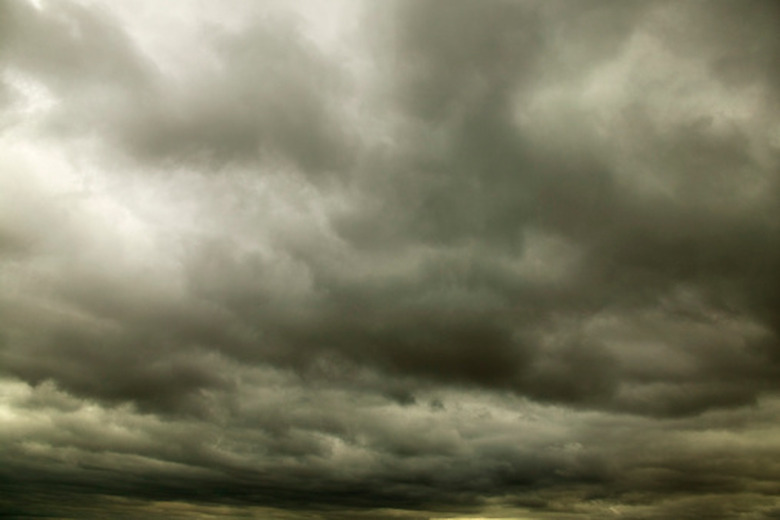What Kind Of Weather Do Nimbostratus Clouds Cause?
When nimbostratus clouds fill the sky, you will want to consider finding some indoor activities. These clouds produce long periods of steady rain. While this may be a welcome sight for farmers during the heat of summer, it is not always welcomed by those who work and play outside. On the bright side, nimbostratus clouds do not produce the severe weather that is associated with rain-producing cumulonimbus clouds.
Characteristics
Characteristics
Nimbostratus clouds are classified as low-level clouds, forming below 6,500 feet. At this altitude, they generally remain below the atmospheric freeze boundary and are comprised of water droplets that do not freeze. They are thick, dark-gray cloud layers that typically cover the entire sky, producing overcast conditions. Frequently, a layer of broken, ragged clouds is visible beneath the main cloud layer. These are known as fractostratus clouds, or scud.
Formation
Formation
The way nimbostratus clouds form is an important part of understanding the weather they produce. Nimbostratus clouds are formed when warm, moist air is gradually lifted over a large area, typically produced by a warm front. Warm fronts move much more slowly than cold fronts, resulting in a more gradual, gentle lifting of the moist, warm air. A cold front typically forces the warm, moist air up very rapidly, leading to strong vertical cloud development, such as thunderstorms. With warm fronts, the cloud layer is much more stable, resulting in the formation of nimbostratus clouds.
Weather
Weather
As a warm front approaches, a sequence of clouds will form, starting with cirrus clouds, then cirrostratus clouds, culminating with nimbostratus clouds. Nimbostratus clouds typically occur in advance of the front and trigger warmer temperatures. Winds are typically light and variable beneath a layer of nimbostratus clouds. Precipitation is generally light or moderate and is widespread. In winter, precipitation can be snow or sleet. Because of the slow movement of warm fronts, this precipitation can last hours or days, greatly reducing visibility.
Cold Air Damming
Cold Air Damming
Cold air masses are denser than an advancing warm front. As a result, the cold air must retreat to make room for the warm, moist air. Sometimes the cold air mass resists this gentle push. When this occurs, the warm front can advance very slowly, leading to days of rainy weather. Geographical features can contribute to this resistance. On the East Coast, the Appalachian Mountains often form a barrier that prevents the heavier, cold air from retreating. This meteorological effect is known as cold air damming.
Cite This Article
MLA
Bennett, Doug. "What Kind Of Weather Do Nimbostratus Clouds Cause?" sciencing.com, https://www.sciencing.com/kind-do-nimbostratus-clouds-cause-8475850/. 22 November 2019.
APA
Bennett, Doug. (2019, November 22). What Kind Of Weather Do Nimbostratus Clouds Cause?. sciencing.com. Retrieved from https://www.sciencing.com/kind-do-nimbostratus-clouds-cause-8475850/
Chicago
Bennett, Doug. What Kind Of Weather Do Nimbostratus Clouds Cause? last modified March 24, 2022. https://www.sciencing.com/kind-do-nimbostratus-clouds-cause-8475850/
